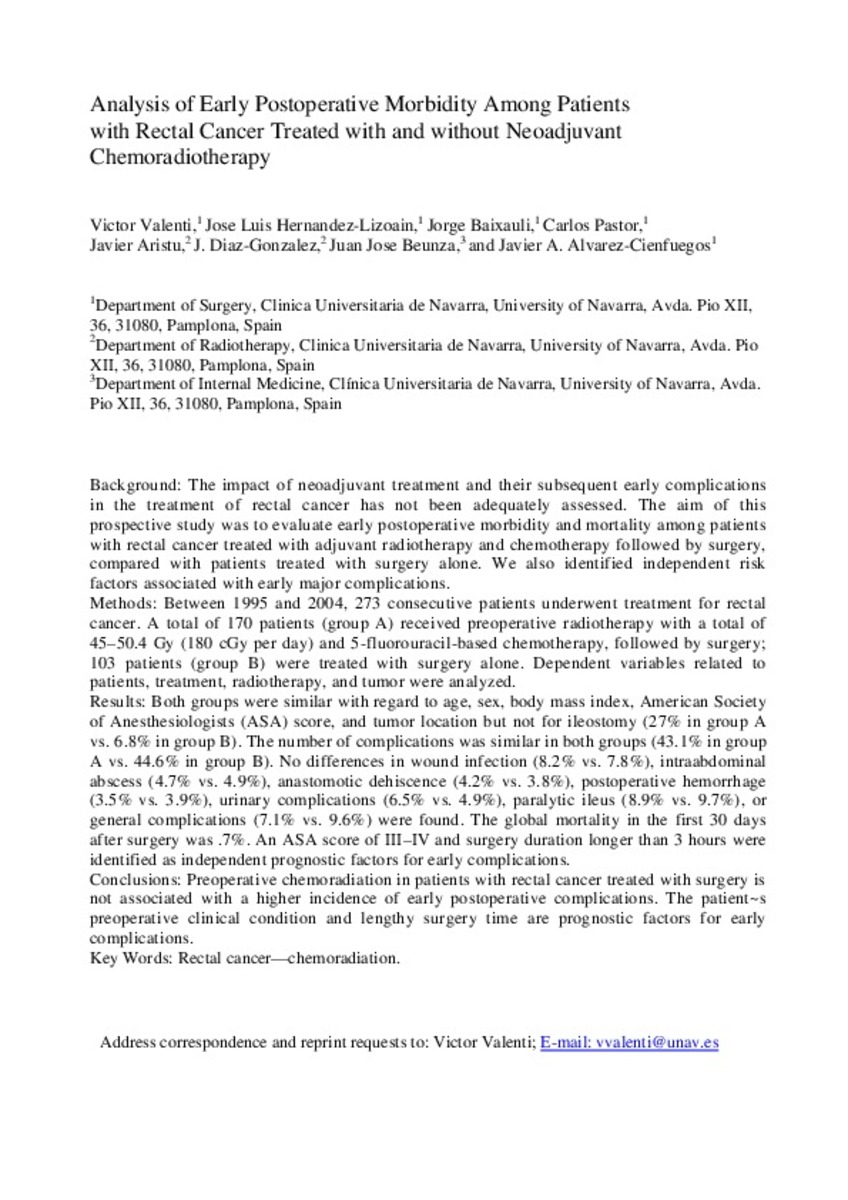Analysis of Early Postoperative Morbidity Among Patients with Rectal Cancer Treated with and without Neoadjuvant Chemoradiotherapy
Palabras clave :
Rectal cancer
Chemoradiation
Fecha de publicación :
2007
Editorial :
Lippincott, Williams & Wilkins
Cita:
Valenti V, Hernandez-Lizoain JL, Baixauli J, Pastor C, Aristu J, Diaz-Gonzalez J, et al. Analysis of early postoperative morbidity among patients with rectal cancer treated with and without neoadjuvant chemoradiotherapy. Ann Surg Oncol 2007 May;14(5):1744-1751.
Aparece en las colecciones:
Estadísticas e impacto
0 citas en

0 citas en

Los ítems de Dadun están protegidos por copyright, con todos los derechos reservados, a menos que se indique lo contrario.










